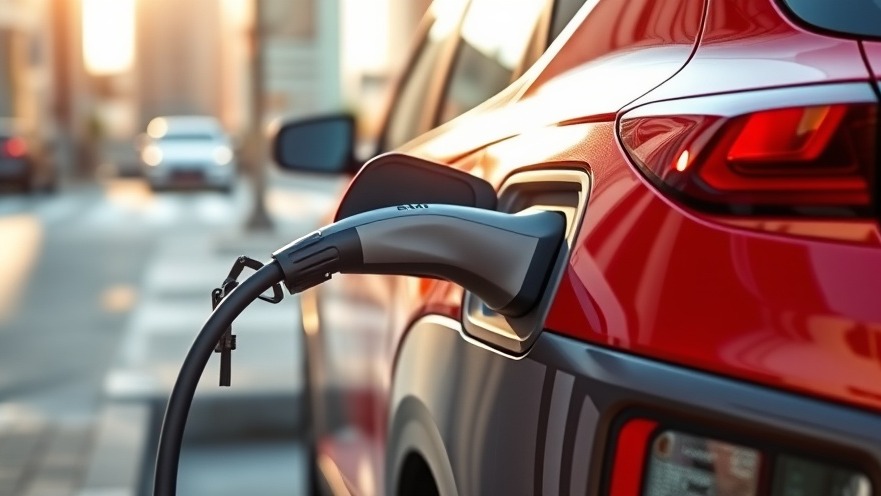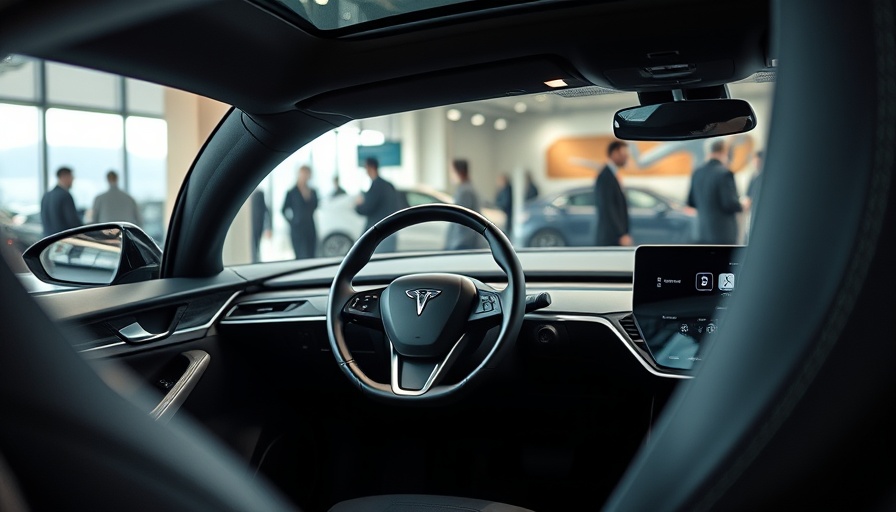
Considerations for Eco-Conscious Buyers of Used EVs
As the demand for eco-friendly transportation accelerates, the market for used electric vehicles (EVs) is burgeoning. For boutique hospitality professionals aiming to incorporate sustainable practices into their businesses, investing in a used EV can be both an environmentally responsible choice and a smart business move. This guide outlines crucial aspects to check before purchasing a used EV, ensuring that your investment aligns with your eco-conscious principles and operational goals.
The Importance of Vehicle History Reports
Before committing to a used EV, obtaining a comprehensive vehicle history report is essential. This report will provide a detailed account of the vehicle's past, including any accidents, recovery status, or title issues. Knowing the history allows you to gauge not only the reliability of the vehicle but also its potential resale value. For small-scale hotel owners who value transparency in their operations, ensuring that your transport aligns with ethical standards enhances your reputation.
Battery Health: The Heart of Electric Vehicles
The performance and longevity of an EV significantly rely on its battery condition. Most EVs come with warranty coverage on their batteries, which can last several years. However, understanding the health of the battery—often indicated by its state of charge (SoC)—is vital, as battery replacement can be a significant cost. For eco-lodge operators keen on monitoring operational costs, this insight is critical in deciding whether a used EV is a worthwhile addition to their fleet.
Charging Compatibility: Ensure Seamless Integration
Before purchasing a used EV, it’s crucial to check its charging compatibility with the infrastructure you already have in place or plan to install. With many small hotels and accommodations exploring solar-powered EV charging solutions, compatibility ensures you won’t face additional expenses in modifying your charging stations. This proactive approach reinforces your commitment to sustainable transportation practices that resonate with your eco-conscious clientele.
Documentation and Certification: The Green Credentials
Ensuring that the used EV has all necessary documentation and any eco-certifications can enhance your business's standing. Look for certifications that align with green policies; this not only demonstrates your commitment to sustainability but may also attract eco-conscious guests. Sustainable practices are no longer just buzzwords; they carry tangible marketing value in today's hospitality landscape.
Cost of Ownership: Calculating Long-Term Efficiency
Beyond the initial purchase price, understanding the total cost of ownership is critical for boutique hospitality professionals. Consider factors such as insurance premiums, maintenance costs, and potential savings from reduced fuel expenses. Some EVs may qualify for tax incentives or rebates that reduce overall ownership costs, making them financially attractive. Keeping an eye on the long-term infrastructure expenses can maximize your investment's return.
Future-Proofing Your Investment with Technological Advancements
With rapid advancements in EV technology, consider how future-proof your investment is. Some older models may not support the latest EV technologies, such as advanced driver-assistance systems. Staying informed about the latest trends in EV technology helps ensure your vehicle remains relevant and effective for years to come. For early-stage entrepreneurs entering the eco-lodging market, future-oriented purchases can reinforce your brand as a leader in sustainable tourism.
Insights on Market Trends for Used EVs
The used EV market is evolving. Current trends suggest increasing demand as more consumers become aware of environmental issues. This growing market for used EVs can also provide opportunities for boutique hotels and guesthouses to lead by example—offering guests access to electric transportation. By staying ahead of trends, hospitality professionals can enhance guest experiences, further strengthening their brand appeal.
Conclusion: Make an Informed Choice for Sustainability
Choosing to invest in a used EV is more than just a purchasing decision; it’s a commitment to sustainable practices that can enhance your business reputation and attract eco-conscious guests. By considering these crucial elements, you position your boutique hospitality establishment not just as a place to stay but as a beacon of sustainability.
If you are motivated to take your first step in enhancing your property’s eco-friendly image through smart investments, start assessing your options today and see how a used EV can fit into your vision for sustainable hospitality.
 Add Row
Add Row  Add
Add 




Write A Comment